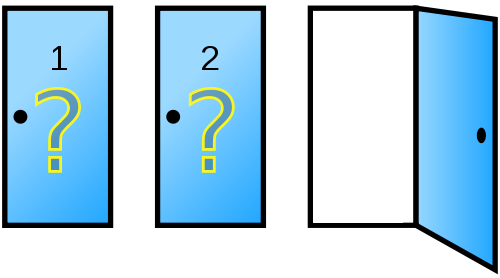MajorMiscue
Democat
No, your 1 in 3 choice is 1 in 3. Eliminate one choice and one goat and you are at 2 choices, one goat and one car, you still with me? You still get to choose and your odds are 50/50.Think about it this way……
When you pick 1 of 3, it’s 33%. I think everyone is in full agreement.
So, he gets rid of a goat. And then let’s you literally take his 66% chance.
That 66% chance of the other two cards being the car doesn’t magically disappear. It’s 66%.
Now you literally get to swap hands.
